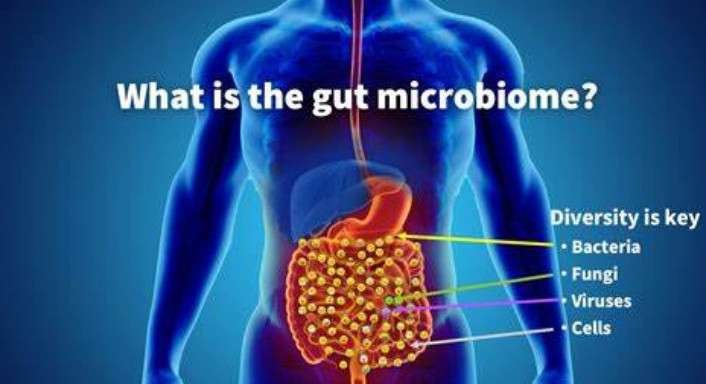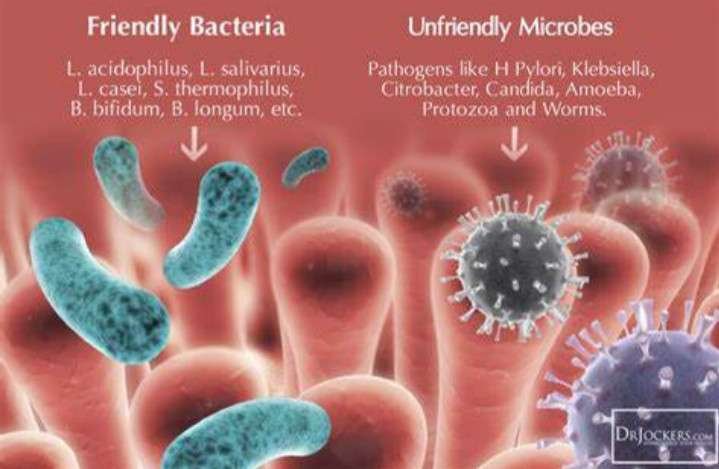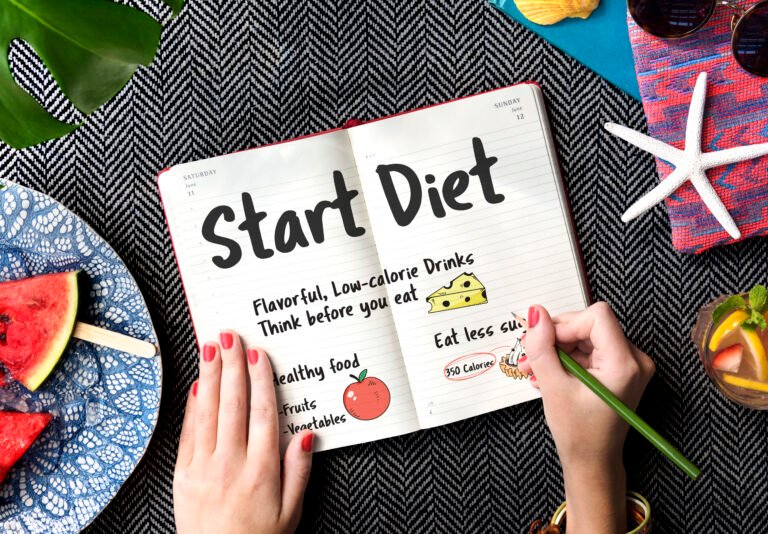Health Benefits of a Whole Foods Diet – Restoring the Gut Microbiome

Are these miracle whole foods the holy grail of optimal health and longevity? If so, can they prevent or cure disease? I don’t know about you, but I’m game to find out more about whole foods. In face, everyone needs to know if there are real, succinct health benefits of a whole foods diet? We are all curious.
The Health Benefits a Whole Foods Diet
We are on a mission to gain knowledge about whole foods. First, we’ll tackle the topic of the health benefits of a whole foods diet and how they help your body. Second, we will explore the mind of your microbiome. Third, you will learn about Leaky Gut Syndrome. Let’s dive into the world of whole foods and Health.

What are Whole Foods?
Whole foods are unprocessed or minimally processed foods in their natural form. Also, many whole foods come from the ground. The best whole foods for health include:
- Vegetables (leafy greens, cruciferous)
- Fruits
- Nuts and seeds (not salted, peanuts, almonds, cashew, sunflower, pumpkin)
- Legumes (beans and lentils, chick peas, lima beans, split peas)
- Unrefined whole grains (brown rice, quinoa, Bulgar wheat, rolled oats, barley)
- Herbs (cilantro, basil)
- Spices (ginger, turmeric, garlic)
Health Benefits of Whole Foods
The health benefits of whole foods are endless. To start,
Standard American Diet
Unfortunately, the standard American diet rated 11 out of 100. The higher the score, the less risk for obesity, high blood pressure, high cholesterol and high triglycerides. A 2010 report from the National Cancer Institute on the status of the American diet found that three out of four Americans don’t eat a piece of fruit in a given day. Nine out of ten don’t reach the minimum for greens or beans (three servings a week for adults).
- Ninety-eight percent don’t reach the minimum for orange vegetables 2 servings a week
- Ninety-nine percent don’t reach the minimum for whole grains (3-4 ounces a day)
In conclusion, nearly the entire population consumes a diet that is not on par with recommendations. According to U.S. Department of Agriculture, estimates:
- 32 percent of our calories come from animal food
- 57 percent from processed plant foods
- Only 11 percent from whole grains, beans, fruits, vegetables, and nuts.
- On a scale of 1-10, the American diet rates a 1.
Adverse Conditions from Standard American Diet
As a result, a healthy lifestyle that include whole foods and plant-based foods can reduce chronic diseases. For example, getting 30 minutes of exercise, not smoking, not being obese, consuming more fruits, vegetables. Whole grains and less meat. These four factors account for 78 percent of chronic diseases.
Healthcare Lacks Emphasis on Nutrition
There is a reason why the United States ranks 43rd in the world in life expectancy. This is because the healthcare system replaces a healthy lifestyle with a routine of taking pills and procedures. There is little emphasis on prevention. Benjamin Franklin was way ahead of his time when he coined the phrase “an ounce of prevention is worth a pound of cure.
Preventing Sickness and Disease
Did you know that we eradicate and prevent sickness and disease by adopting a whole food plant-based diet. As it turns out, your diet is the greatest determinant of your health during your lifetime. Moreover, your diet is also the greatest determinant of the health of your gut health.
Gut Microbiome

You will need a pen and notepad for this section. For starters, let’s talk about your gut microbiome. The microbiome is a community of microorganisms that reside inside your gut. For example, there are five types – bacteria, yeast, viruses, parasites and archaea. Furthermore, there is good and bad bacteria:
- Good bacteria – Lactobacillus and Bifidobacteria
- Bad bacteria – E. coli and Pseudomonas
- Microbiome (95%) is in the large intestines
- In small intestines 50g (weight) of microbiome
Leaky Gut Syndrome
Ask your physician or do your own research. You will find that many medical conditions are related to our gut health. This condition is known as intestinal permeability. The lining of your bowels are now permeable. For instance, your undigested food, bacteria, and waste products “leak” out of the intestines.
These toxins end up in your blood stream. As a result, infections, allergies, and other digestive problems seep in. If left unchecked, leaky gut can lead to irritable bowel syndrome (IBS), Celiac, food allergies, parasite infections, Crohn’s disease and other medical conditions.
Knowledge is Power
Pay attention to your body. It will always give you signals when something feels strange. Early detection is crucial. Also, have your regular yearly check-up. Remember Benjamin Franklin’s advice, “an ounce of prevention is worth a pound of cure. In summary, Let health be your number one priority.
Get enough quality sleep, drink adequate amounts of water, get 20-30 minutes of physical activity every day or invest in a treadmill. Stay ahead of sickness and disease. Listen to your gut. It may be leaky. Better yet, just take a nice walk. It’s a wonderful investment.
Solutions for Leaky Gut
Although it sounds a bit intimidating, there are ways to reverse leaky gut syndrome. First, you must make a few changes to your lifestyle. Small changes can really add up. Try this: Eat immunity-enhancing foods such as fruits, vegetables and whole grains. These foods will increase “good bacteria” in your gut, balancing the flora (good ans bad bacteria).
Another Feature of Good Bacteria
- Good bacteria tightens the intestinal walls.
- Good bacteria repopulates and
- Good Bacteria overthrows the bad bacteria.
- Probiotics restores the gut and saves the day.
The best solution for leaky gut is to avoid foods that contain sugar, gluten, soy, and cheap oils (with high levels of omega-6 fatty acids.
Transition to a Healthy Lifestyle
I don’t know who needs to hear this. However, hear me out. We are in a hand-to-mouth crisis? This means that we have to hunker down and make a drastic switch from the Standard American Diet. If you know anyone who fits in this category, do it for them. Moreover, don’t go it alone. There are clinics and resources out there.
Final Thoughts
Converting to a new diet takes time and sacrifice. It does not happen overnight. Taking incremental steps is key. Making small changes over time pays off. Start by ditching fast food. Next, make health food choices that include fresh fruits, and vegetables (organic) and whole grain. Make a habit of buying lots of rainbow colors of whole foods.
Your symptoms will dissipate and your doctor will be shocked the decrease in your blood pressure, blood sugar along with a drop in your cholesterol. You have modified your lifestyle, conquered your food cravings, strengthened your immune system and are living your best life. Keep up the awesome work. Health is wealth.
Thank you for sharing this lifestyle journey with me. I look forward to building a good relationship with you. I also invite you to leave a comment or question in the space below.
Yours Truly,
Rachel. Founder and CEO
My website: mybluegenes.com
My email: rachele@mybluegenes.com







Here are a few more facts:
Recent Research and Updates:
1. The statistics about the American diet have evolved since 2010. More recent data from the CDC (as of my last update in 2024) shows slight improvements in fruit and vegetable consumption, though still far below recommendations. However, ultra-processed food consumption has increased, now accounting for approximately 60% of calories in the American diet.
2. Gut Microbiome Science has advanced significantly:
• We now know the gut microbiome contains trillions of microorganisms, far more diverse than initially thought
• Research has revealed stronger connections between gut health and mental health (the gut-brain axis)
• New studies have identified more specific strains of beneficial bacteria beyond just Lactobacillus and Bifidobacteria
3. Leaky Gut Research:
• The medical community has increasingly recognized intestinal permeability as a legitimate condition
• New research has identified additional factors that can contribute to leaky gut, including stress, certain medications, and environmental toxins
• Studies have shown stronger connections between leaky gut and autoimmune conditions
Important Additions:
1. Plant-Based Protein Sources:
The article could benefit from mentioning complete protein sources from whole plant foods, such as:
• Quinoa
• Buckwheat
• Hemp seeds
– Complete protein combinations (rice + beans, etc.)
2. Anti-inflammatory Foods:
The article could emphasize specific anti-inflammatory whole foods like:
• Berries
• Leafy greens
• Fatty fish (for those who include fish)
• Green tea
• Fermented foods
3. Practical Implementation:
The article would benefit from more specific guidance on:
• Meal planning strategies
• Budget-friendly whole food shoppin
• Batch cooking techniques
• Storage tips for fresh produce
Critical Analysis:
While the article provides good basic information, it could be more specific about:
• Serving sizes and portions
• Different dietary needs for different populations
• The role of individual variation in diet response
• The importance of dietary diversity beyond just eating whole foods
Happy Thanksgiving
Rachele
Thank you for your sharing. I am worried that I lack creative ideas. It is your article that makes me full of hope. Thank you. But, I have a question, can you help me? https://www.binance.com/ru-UA/register?ref=OMM3XK51
I’ll do my level best to provide useful articles that you can share with family and friends.
Happy Holiday!
Thank you for your sharing. I am worried that I lack creative ideas. It is your article that makes me full of hope. Thank you. But, I have a question, can you help me?
You bet.
I’m here for you.
Rachele